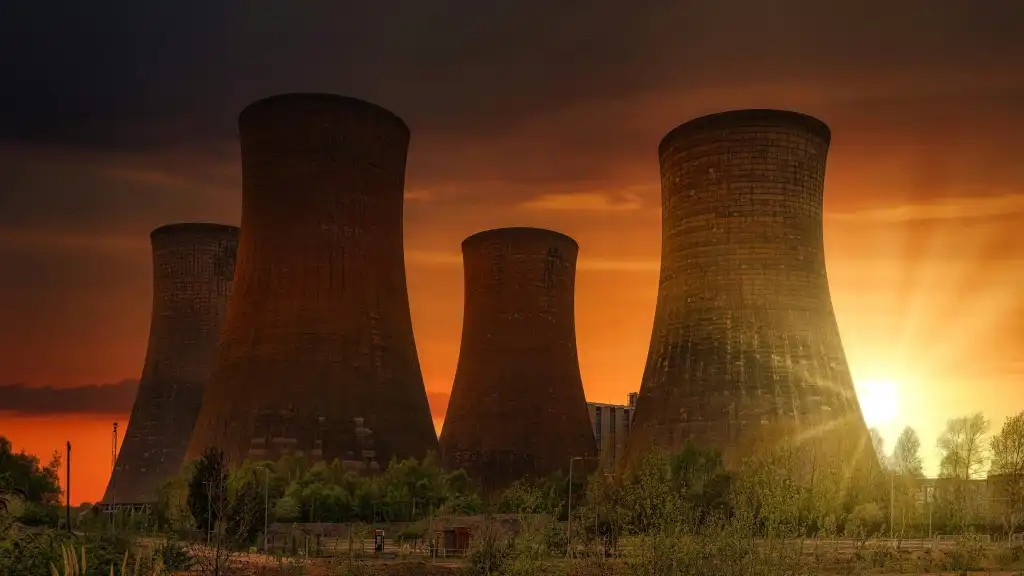Introduction
Artificial Intelligence (AI) is revolutionizing industries across the globe, from healthcare to finance, but this leap forward comes with a significant energy demand. As AI systems become more sophisticated, their power requirements skyrocket. Traditional energy sources are struggling to keep up, prompting a shift towards more sustainable and reliable options. Enter the nuclear industry. This article explores why AI hosts are increasingly turning to nuclear power to meet their growing energy needs.
The Growing Power Needs of AI
AI’s rapid evolution has led to a surge in computational demands. Machine learning models, especially those involved in deep learning, require vast amounts of data processing power. Data centres, the backbone of AI operations, consume enormous amounts of electricity, often equated to small towns. As AI continues to develop, these power requirements are expected to double or even triple.
Why Traditional Energy Sources Fall Short
Fossil fuels, once the go-to for energy, are no longer viable in the long run. They are finite and environmentally damaging, and their supply chains are vulnerable to geopolitical instability. Renewable energy sources like solar and wind, though cleaner, face issues of intermittency and storage, making them less reliable for the constant power needs of AI systems.
Nuclear Power: An Overview
Nuclear power is generated through the process of nuclear fission, where the nucleus of an atom splits into smaller parts, releasing a tremendous amount of energy. This energy is harnessed to produce electricity. There are various types of nuclear reactors, including Pressurized Water Reactors (PWRs) and Boiling Water Reactors (BWRs), each with unique methods of heat generation and management.
The Advantages of Nuclear Power for AI
Nuclear power offers several benefits that make it attractive for AI hosts:
- High Energy Output: Nuclear reactors produce a significant amount of energy from a relatively small amount of fuel, making it highly efficient.
- Reliability and Stability: Unlike solar and wind, nuclear power is not dependent on weather conditions, providing a steady and reliable energy supply.
Safety Concerns and Misconceptions
Public perception of nuclear power is often marred by safety concerns. However, modern nuclear technology has made significant strides in safety measures. Advanced reactors are designed with multiple safety systems to prevent accidents, and rigorous regulatory frameworks ensure their safe operation.
Environmental Impact of Nuclear Energy
When compared to fossil fuels, nuclear energy has a much lower environmental footprint. It produces minimal greenhouse gases, helping to combat climate change. Nuclear waste, though a concern, is manageable with current technologies. Long-term storage solutions and recycling of spent fuel are areas of ongoing research and improvement.
Economic Aspects of Nuclear Power
Building and maintaining nuclear power plants require substantial investment. However, the long-term economic benefits outweigh the initial costs. Nuclear plants have long operational lifespans and provide a stable, low-cost energy supply, making them economically viable in the long run.
Case Studies: AI and Nuclear Power Collaborations
Several pioneering projects highlight the successful integration of AI and nuclear power. For instance, data centres powered by nuclear energy have demonstrated remarkable efficiency and sustainability. These case studies provide valuable insights and lessons for future collaborations.
Future Prospects: AI Advancing Nuclear Technology
AI is not only a beneficiary of nuclear power but also a catalyst for its advancement. AI technologies are being employed in nuclear research to enhance reactor efficiency, predict maintenance needs, and improve safety protocols. This symbiotic relationship promises significant advancements in both fields.
Challenges and Risks
Despite the benefits, integrating AI and nuclear power comes with challenges. Cybersecurity is a major concern, as AI systems are susceptible to hacking. Moreover, the complexity of nuclear technology demands highly skilled personnel, posing a challenge in terms of workforce training and availability. Risk mitigation strategies, including robust cybersecurity measures and comprehensive training programs, are essential.
Public Perception and Acceptance
Public acceptance of nuclear power is crucial for its expansion. Addressing fears and misinformation through transparent communication and education can help build trust. Highlighting the safety measures and environmental benefits of nuclear power can shift public opinion in its favour.
Policy and Regulation
Government policies and regulations play a pivotal role in the deployment of nuclear power. Clear, consistent policies that support innovation and ensure safety can facilitate the growth of nuclear energy. International cooperation is also essential, as nuclear power transcends national boundaries.
Ethical Considerations
The intersection of AI and nuclear power raises ethical questions. Responsible development and deployment of these technologies are crucial to avoid potential misuse. Ethical frameworks and guidelines should be established to ensure that advancements benefit society as a whole.
Conclusion
The growing energy demands of AI systems necessitate a reliable and sustainable power source. Nuclear energy, with its high output and stability, presents a compelling solution. While challenges and risks exist, the potential benefits for both AI and the nuclear industry are immense. By embracing this synergy, we can pave the way for a more sustainable and technologically advanced future.
FAQs
- Why is nuclear power considered a good option for AI energy needs?
Nuclear power provides a high, stable energy output, essential for the constant demands of AI systems, and is less affected by external conditions compared to renewable sources. - What are the main safety concerns with nuclear power?
Safety concerns include potential reactor accidents and the management of radioactive waste. However, modern reactors have advanced safety features to mitigate these risks. - How does nuclear energy compare to fossil fuels environmentally?
Nuclear energy produces minimal greenhouse gases, making it much cleaner than fossil fuels, which contribute significantly to climate change. - Can AI help improve nuclear power technology?
Yes, AI can enhance nuclear reactor efficiency, predict maintenance needs, and improve safety protocols, driving advancements in nuclear technology. - What are the economic implications of using nuclear power?
While the initial costs of building nuclear plants are high, they offer long-term economic benefits through stable, low-cost energy production over their lifespan.


